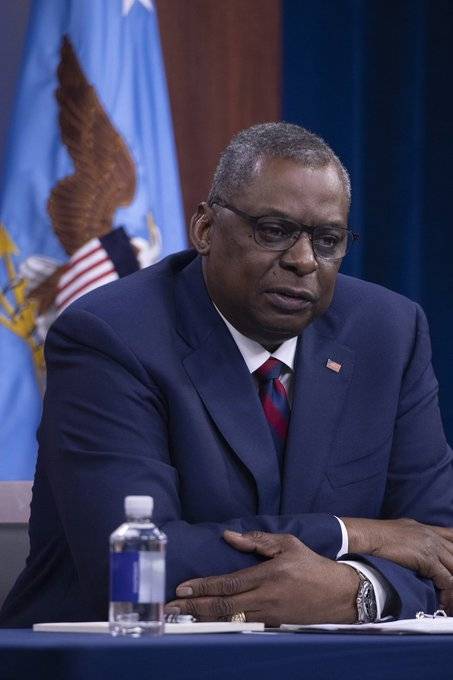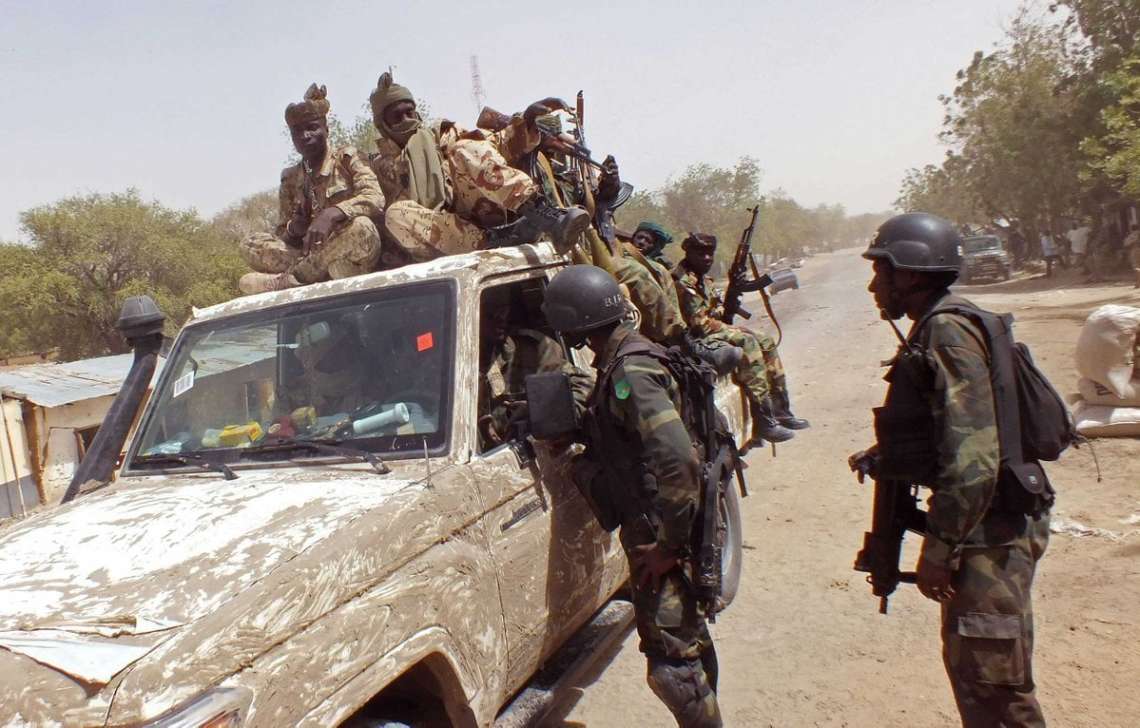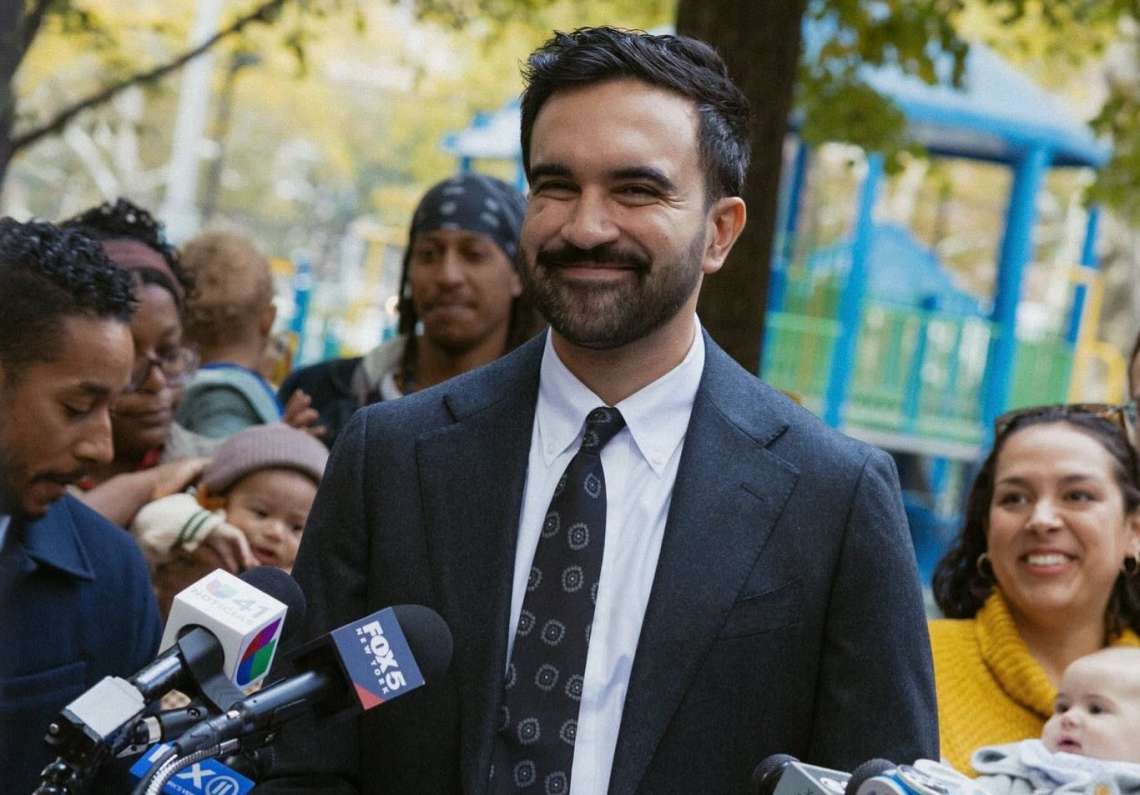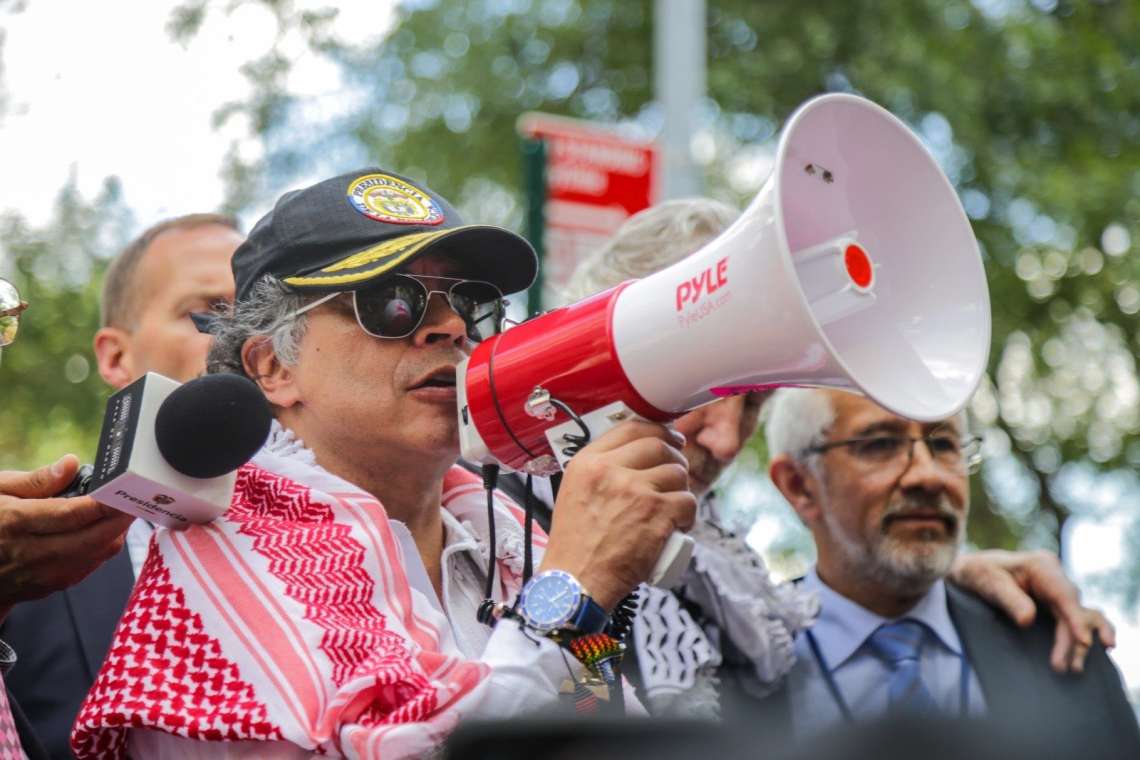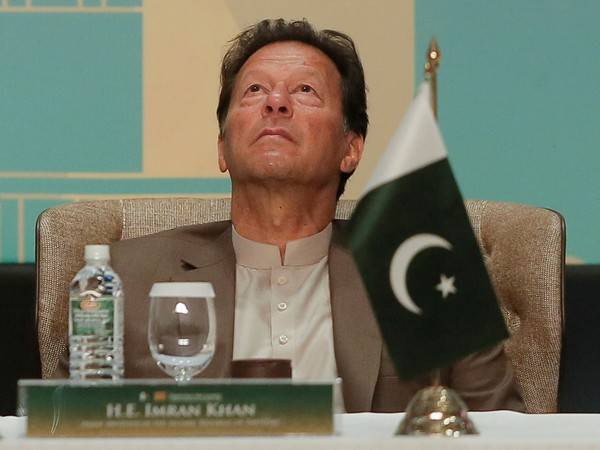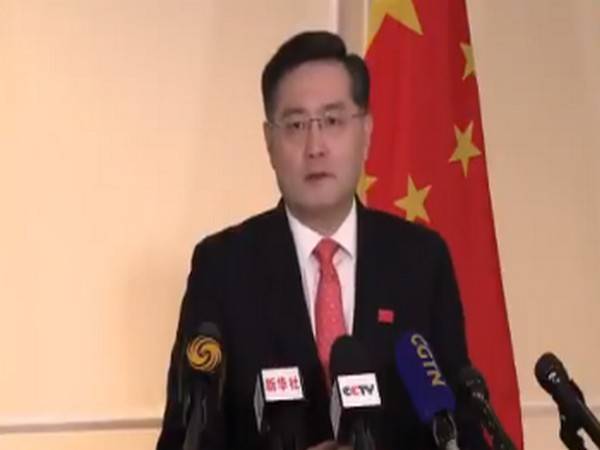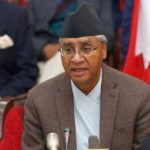Lloyd Austin condemned the recent attack on the residence of Iraqi Prime Minister Mustafa Kadhimi and expressed hope that the formation of the new government in Iraq will proceed peacefully, reports Asian Lite News
The US military mission in Iraq will be completed before the end of this year during a meeting with his Iraqi counterpart Juma Inad, Pentagon confirmed on Saturday.
“The United States will uphold the commitments it made during the July 2021 US- Iraq Strategic Dialogue, including that there will be no US forces with a combat role by the end of the year,” the Pentagon spokesperson John Kirby said on Saturday.
This statement was made after Secretary of Defense Lloyd Austin met on November 20 with Minister Jumah Inad Sadun al-Jaburi, Iraq’s Minister of Defense, in Manama, Bahrain, during the annual Manama Dialogue.
Austin further confirmed to the Iraqi defence minister that American forces will remain in Iraq at the invitation of the Iraqi government to support the country’s security forces, the statement said.
The sides also discussed the next stage of the US military mission in Iraq, which will focus on “advising, assisting, and sharing intelligence with the Iraqi Security Forces in support of the campaign to defeat ISIS,” the statement read.
The Pentagon chief again condemned the recent attack on the residence of Iraqi Prime Minister Mustafa Kadhimi and expressed hope that the formation of the new government in Iraq will proceed peacefully.
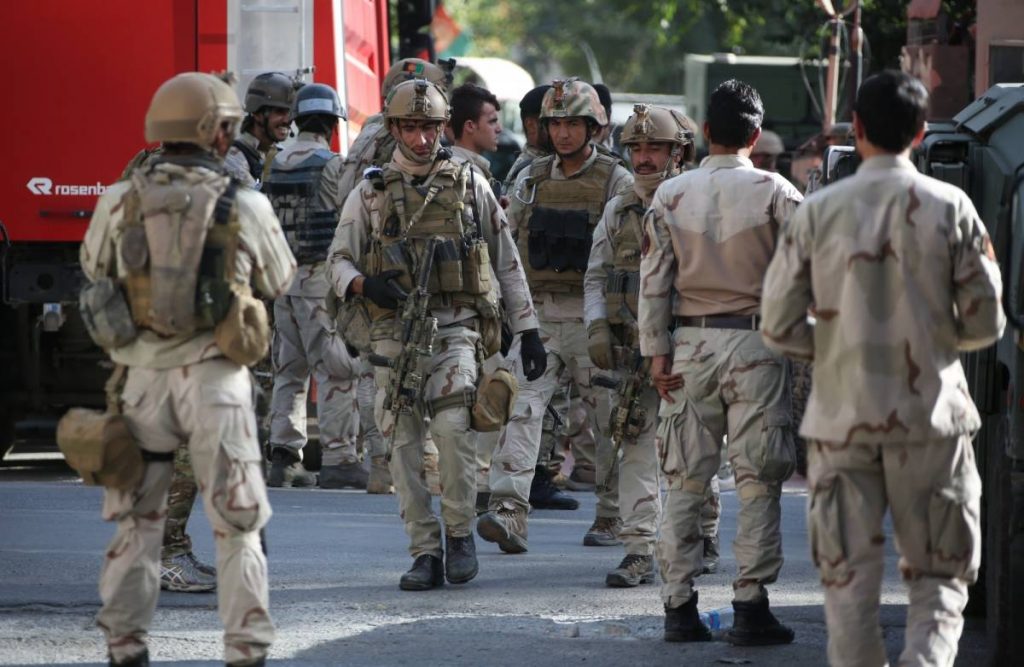
Austin vows support
Austin also warned it was capable of deploying “overwhelming force” in the Middle East as it faced questions about its willingness to use its military power in the region.
He said that all options would be open if diplomacy failed to halt Iran’s nuclear program, but he was also forced to rebut claims that the US had become reluctant to use force.
The Pentagon chief was asked why Washington did not respond to last month’s drone-and-artillery attack on a base used by the US-led coalition fighting Daesh in Syria.
“The United States of America maintains the right to defend itself. And we will defend ourselves and our interests, no matter what, at the time and place of our choosing,” he replied. “And let no country, let no individual be mistaken about that. We are committed to defending ourselves and our interests and that includes our partners as well. And we’re also committed to not allowing Iran to get a nuclear weapon.”
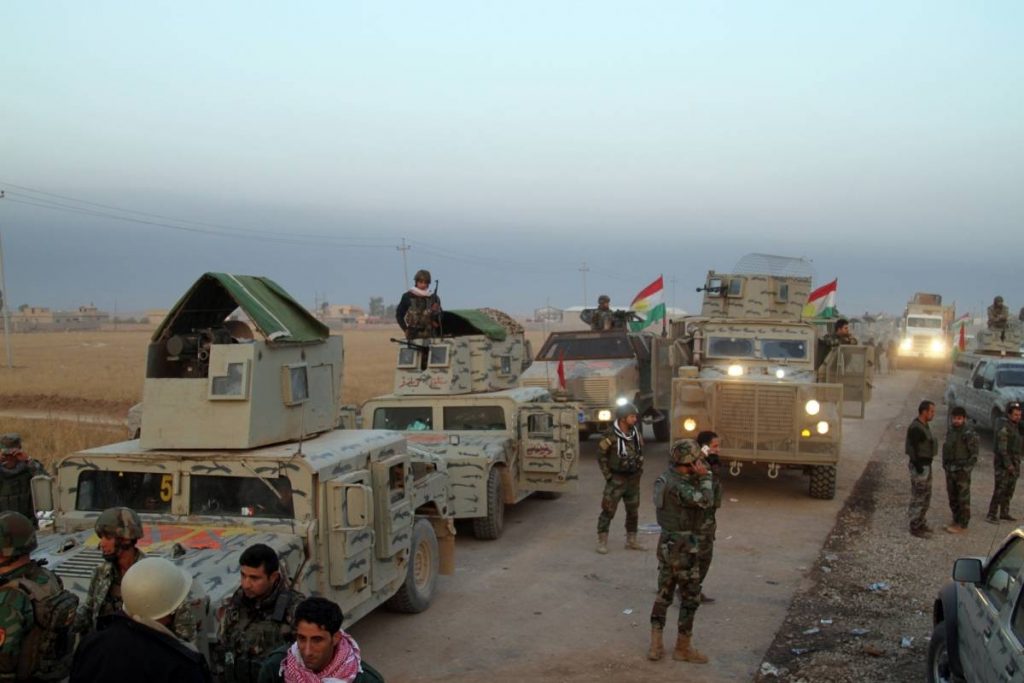
Austin said Washington’s major goal was to strengthen its “unmatched” alliances in the Middle East, but that military force remained an option with tens of thousands of its troops stationed in the region.
In brief remarks to the forum, Saudi Arabia’s Prince Turki Al-Faisal called for “demonstrative action” in the region, including the “total enforcement” of the arms embargo on Yemen’s Houthis.
Austin said: “America’s commitment to security in the Middle East is strong and sure. Ultimately, our mission is to support diplomacy and to deter conflict and to defend the United States and our vital interests. If we’re forced to turn back aggression, we will win and we will win decisively.”
Addressing the forum, Bahrain’s Foreign Minister Abdullatif Al-Zayani said Lebanon needed to demonstrate that Hezbollah could change its behavior to mend a rift with Gulf states.
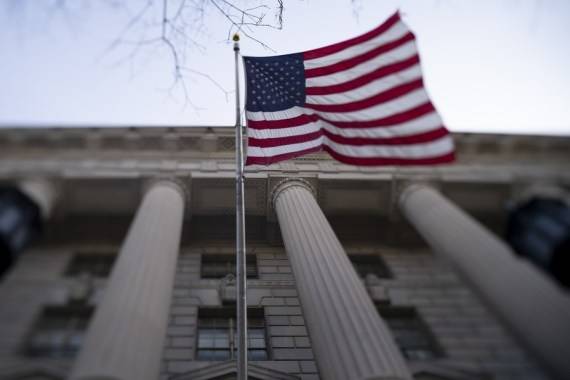
“We (can) extend support and try to find solutions in the future, but once it is demonstrated that Hezbollah can be changing its behavior,” Al-Zayani said.
Meanwhile, Iran has long maintained that its nuclear program is peaceful even though the American intelligence agencies and International Atomic Energy Agency said that Tehran had an organised program until 2003. Iran’s mission to the United Nations, as per the report, did not immediately respond to a request for comment on Saturday. Since the Trump administration’s withdrawal from the nuclear accord, there have been a series of escalating incidents that struck the wider Mideast.
The aforementioned incidents include drone and mine attacks targeting vessels at sea along with assaults blamed on Iran and its proxies located in Iraq and Syria. In early 2020, the United States also directed an airstrike that killed the top Iranian general in Baghdad, to which, Iran retaliated by targetting American troops in Iraq with ballistic missiles. Under the present Biden administration, US military officials are also looking at a broader relocation of forces from the Mideast to other regions.
In his remarks, Austin hinted at the same plan and said, “Our potential punch includes what our friends can contribute and what we have prepositioned and what we can rapidly flow in…Our friends and foes both know that the United States can deploy overwhelming force at the time and place of our choosing.”


